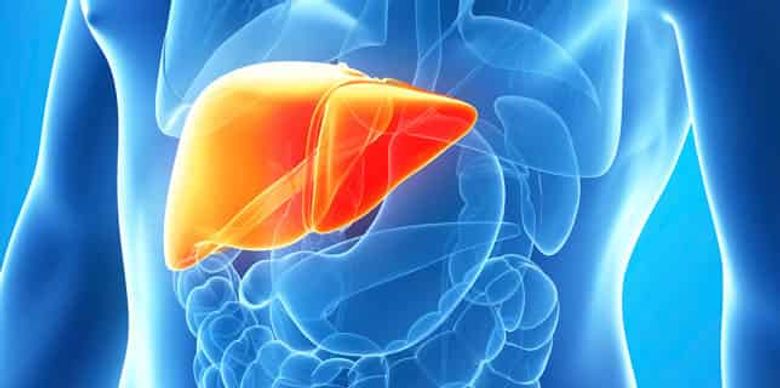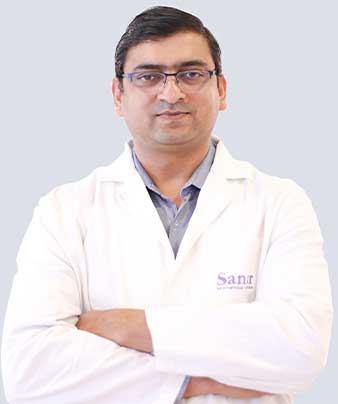Liver Disease Signs and Symptoms

Liver Diseases- Explore the Primary and Secondary Causes, Signs & Symptoms, Risk Factors, Complications, Preventive Steps, and Treatment Solutions
A quick overview:
• The liver is the largest solid organ in the human body (about the size of a football), weighing on an average 3.5 pounds.
• It is responsible for carrying out a host of crucial functions, including manufacturing of high-priority proteins, digesting food, intestinal absorption of fats and the fat-soluble vitamins A, D, E, K, eliminating harmful biochemical waste products, and metabolism of fats and carbohydrates. It also serves elementary in detoxifying alcohol, certain drugs, along with environmental toxins.
• Diseases such as hepatitis, cirrhosis (scarring), liver cancer, and fatty lever may lay a severe impact on the performance of the liver.
• Some of the common symptoms of liver disease can include swelling, extreme tiredness, nausea, vomiting, jaundice, bleeding, and bruising.
• The solution to liver diseases differ according to their nature; for instance, while hepatitis A requires supportive care to maintain hydration, other forms of liver disorders may require long-term medical care to control and minimize the consequences. in case, a complication arises such as liver disease progress to cirrhosis or liver failure, liver transplantation is the ultimate and only solution.
Facts about Liver Diseases:
Disturbance of liver function results in liver disease. The liver holds a crucial responsibility for carrying out body's important functions and should it become diseased or wounded, the commotion caused can lead to loss of those functions, putting the body at risk.
Liver disease is an umbrella term that encloses a variety of potential abnormalities, which decreases the efficiency of the liver; its ability to perform designated functions diminishes greatly.
Some of the most common liver diseases are:
1. Acute hepatitis (an inflammation in the liver tissue)- Viral hepatitis, hepatitis A, B, C, D, & autoimmune hepatitis.
2. Fatty liver disease (large vacuoles of fat build-up in liver cells leading to dysfunction)
3. Cirrhosis (scarring of the liver caused due to long-term damage)
4. Cancer (caused when hepatitis, cirrhosis etc. aggravates)-Hepatocellular carcinoma (HCC), hepatoblastoma, Cholangiocarcinoma.
Primary causes:
Common Causes of Liver Disease include:
The human liver can experience difficulty in performing its respective functions owing to a bountiful of reasons including, inflammation of cells (hepatitis), obstruction caused in the flow of bile (cholestasis), accumulation of Cholesterol ortriglycerides (steatosis), damage of liver tissue caused by chemicals and minerals, or infiltrated by abnormal cells, like cancer cells, just to name a few.
Secondary causes:
Other causes that provoke problems can be:
1. Drug-induced liver issues: Intake of prescription, over-the-counter (OTC) drugs, various types of herbal supplements, vitamins, and dietary supplements such as acetaminophen, Tylenol, and others for a long period of time can stop the liver to function normally.
2. Overconsumption of alcohol: Alcohol abuse is detrimental to the liver function capacity, and has been recognized as one of the prime causes of liver diseases around the world. Being highly toxic to liver cells, alcohol can result in an acute inflammation, commonly referred to as alcoholic hepatitis. Cases associated with chronic alcohol abuse can lead to fat accumulation in the liver cells which in turn affects the liver's ability to function.
3. Cirrhosis: A late-stage of liver disease, cirrhosis induce scarring effects on the liver and a grave loss of functioning liver cells which may lead to a liver failure.
4. Immune (defense) System abnormalities: Due to disorders such as autoimmune hepatitis, primary biliary cirrhosis, primary sclerosing cholangitis, the immune system of the body begins to attack parts of the body including liver.
5. Genetic (hereditary) Abnormalities: An abnormal gene inherited (from one or both the parents) can produce a range of substances in the liver, resulting in liver damage. Some of the most commonly occurred genetic liver disease have been listed below,
• Hemochromatosis
• Hyperoxaluria and oxalosis
• Wilson's disease
• Alpha-1 antitrypsin deficiency
Other causes include
1. Metabolic problems,
2. Non-alcoholic fatty liver disease,
2. Cancer and other growths- Liver cancer, Bile duct cancer, Liver adenoma
Signs and Symptoms of liver disease
Acute and persistent liver disorders can reduce the liver's capacity to function normally. Nevertheless, the human liver holds an enormous reserve capacity. Simply put, it takes a substantial liver damage to interfere with the functions of liver. As the liver experiences disturbance, symptoms arise. Examples of such symptoms are:
1. Skin and eyes appear yellowish (jaundice)- This may come up when the liver fails to perform metabolic and secretory( of yellow pigment termed as bilirubin present in bile) functions.
2. Bleeding and bruising- When the liver is unqualified for making enough of the normal blood clotting proteins in the body, bleeding and bruising are apparent.
3. Swelling in the legs and ankles: Edema, a condition, wherein, an abnormal accumulation of fluid in interstitium takes place, can give rise to severe swelling and pain in the legs and ankles.
4. Extreme Tiredness: A dysfunctioned liver can produce tremendous fatigue in the body. It may result due to an impaired metabolic function of the liver.
Apart from this, liver diseases are associated with several other signs and symptoms such as abdominal pain, itchy skin, dark urine color, pale stool color, or bloody or tar-colored stool, nausea or vomiting, and loss of appetite.
Potential Risk factors:
Factors such as heavy alcohol use, injection of drugs using shared needles, tattoos or body piercings, blood transfusion before 1992, exposure to other people's blood and body fluids, and harmful chemicals or toxins, unprotected sex, presence of health conditions like Diabetes, obesity can put enhance the risks of liver disease in the body.
Complications:
The probability of liver failure becomes higher than ever in patients with untreated liver diseases. Hence, noting the indications or symptoms of liver disease at an early stage and consulting a doctor is necessary.
Effective Treatment Solutions:
A variety of treatment methods like providing supportive care to maintain hydration, surgical intervention to remove the gallbladder, long-term medical care, oral medications including low sodium diet and water pills, performing a paracentesis (that involves removing the excess fluid via a needle and syringe) and operation serve as a solution to many liver-related problems. A liver transplant is advised to patients whose livers have failed or have developed some severe complications.
Preventive Steps:
Liver diseases are preventable. Steps like alcohol consumption control, proper vaccination, regular intake of prescribed medications, weight maintenance can impede the risk of liver disease in people of all ages.
How can we help you?
MedMonks, a reputable medical travel company, has gathered a team of experienced professionals and useful tools to help you locate the best treatment facilities and esteemed doctors that specialize in performing a crucial surgical procedure such as liver transplant at minimal costs. We provide an end-to-end support to patients, who requires a liver transplant surgery urgently. From initial virtual consultation to offering a second opinion regarding diagnosis or line of treatment, we offer an aid to patients help them get rid of liver-related issues for life.





